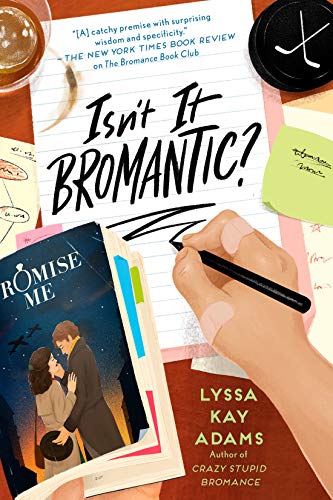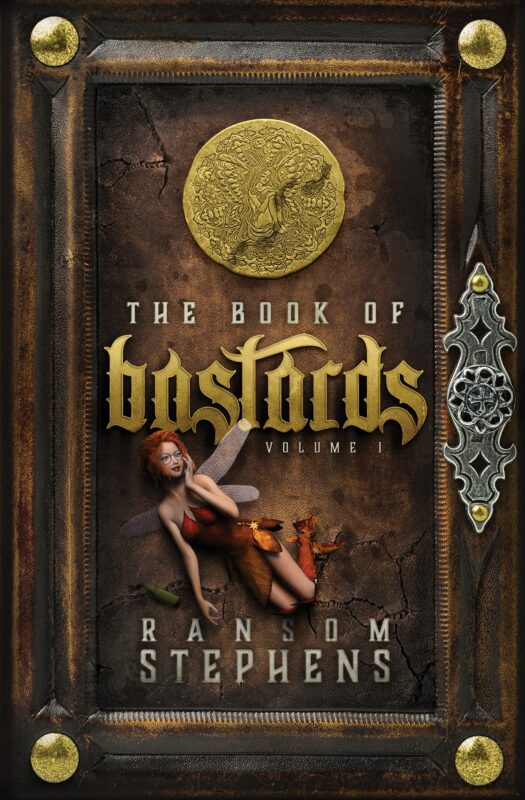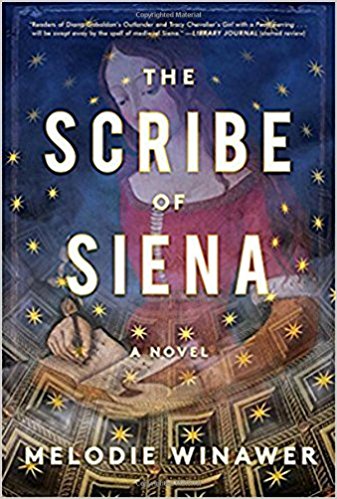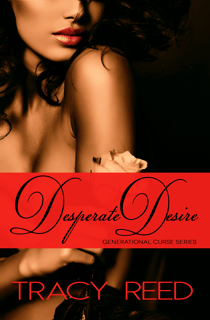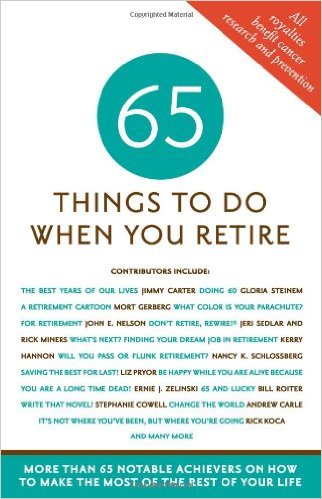EYE OF THE BEHOLDER by Rebecca Forster
March 15, 2019 by Rebecca Forster in category The Write Life by Rebecca Forster tagged as Alexander McCall Smith, Edinburgh, inspiration, JK Rowling, Outlander, Rebecca Forster.
I was in the U.K. during the last two weeks and every second was a celebration of writing. My son graduated with his masters in writing from Oxford (I am in awe), I met an author I had been corresponding with who managed to meet me in London on his way to the Netherlands. I had cocktails with a fan in London and another fan/friend/author in Edinburgh. When all that was done, another new friend drove me around the city.
I saw J.K.Rowling’s house (actually, I saw her security hedge) and Alexander McCall Smith’s haunts. I went to the writers’ museum. There were statues of writers, dishtowels, t-shirts and cement blocks in the squares featuring literary quotes. I raised a glass at The World’s End Pub made famous by Outlander. Even though I have made a living writing for over thirty years, I felt as giddy as a newbie in this amazing city. But when my host drove me to a middle school and parked across the street, I was speechless.

I will pause here to make a confession. I have never read a Harry Potter book. I have never seen a Harry Potter movie. I have never been to Universal Studios and gone on the Harry Potter tour. But the moment I put eyes on the imposing school building – ancient stones black with soot, turrets sliced into pieces by narrow windows, an entrance door so large it would take ten people to open it or at least a magic spell – I knew this was the building that inspired Harry Potter.
Thousands of people drive by that school each day, hundreds of uniformed students walk the halls and parents attended teacher meetings. For them that place was a school; for Rowling it was a universe.
On the other end of town I found Alexander McCall Smith’s stomping grounds. There is no 44 Scotland Street. However, I did see 43 Scotland Street and that was all I needed to understand his work.
Edinburgh is behind me, but I will never forget the moment I recognized the home of Harry Potter or the neighborhood of 44 Scotland Street. The reader in me lives for these moments when an author’s inspiration meets my reality. The author in me dreams that one day a reader will stand in the middle of Hermosa Beach and recognize it as the place Josie Bates was born.
2 0 Read more
A Tucker Story by Rebecca Forster
February 15, 2019 by Rebecca Forster in category The Write Life by Rebecca Forster tagged as Dogs!, inspiration, Pets, Rebecca Forster. writing
When the phone rang at 4:44 my husband answered. I sat up in bed and waited. Whatever news was to come, it wouldn’t be good. Tucker, my son’s dog, had died.
Ten years ago at Christmas time, against my advice, he got his then girlfriend a dog. The lady in question was not a homebody like my son, and I didn’t think she would like the responsibility of a dog. Still, poor as he was, my son wanted to get her this gift. Somehow he hooked up with a man in an alley who handed him a dog. He in turn proudly handed the pup to his girlfriend.
A few weeks later, the girl was gone and the dog was back. I advised my son to give him away. He couldn’t afford another mouth to feed. What if the dog got sick? What would the little thing do all day in a studio apartment while my son looked for work? Thankfully, my wise counsel fell on deaf ears, and Tucker became part of our family.
That dog grew from a terrified little mutt to a self-confident, joyful, loving pet. It took a year of patience and love for my son to convince Tucker that no one would beat him, no one would abandon him, and everyone would love him.
Tucker was polite. He waited patiently for everything – a walk, a treat, a cuddle – and showed gratitude for small kindnesses in a million little ways. Never a crotch-sniffer he spent weeks attacking mine, befuddling us all with this new behavior. I was diagnosed with uterine cancer a few weeks later and once I was operated on, he never did it again. I think that was a Tucker miracle.
He slept at my feet while I wrote, was underfoot when I cooked, followed me everywhere until my son came into the room. Then it was clear that Tucker’s heart belonged to him. The love between this rescue dog and this young man was glorious, and gentle, and kind, and loving, and caring. They were friends. They had each other’s backs.
If you think about it, all of us who write are striving to tell a Tucker story. In his little life there was drama and character building, joy and pain, courage and excitement, goals to be met, laughter to be shared and tears to be shed. If we as authors could weave a story one tenth as full as this dog’s life, our books would never be forgotten. So tomorrow when I sit down to work, I will remind myself to write a Tucker story even though I might shed a few tears along the way.
GUTS
January 15, 2019 by Rebecca Forster in category The Write Life by Rebecca Forster tagged as choices, writing
A few days ago my mom had a lunch, an affair to show off her Christmas decorations before she started taking them down. There were seven of us munching on layered Jell-O salad, finger sandwiches, and clam chowder. Over coffee, one of the ladies said:
“Tell us again how you started writing.”
I won’t bore you with the story, but my start involved a dare, a lot of hours of butt in the chair, no expectation of ever getting published and absolute terror and self-doubt once my first book went to contract.
When I was finished with my tale, she said: “Wow, that took guts.”
I wanted to tell her that, no, writing my first book didn’t take guts, staying in the industry did. If you’re reading this, and you are writing, you qualify as gutsy.
Every day you make decisions that will change the course of your career: you dig into your own pocket for advertising and public relations, are faced with tough demands from publishers and hard creative choices. Currently, there is a decision many of you will face and that is whether or not to sign a traditional publishing contract that contains a morality clause. Such clauses are included by houses like Simon & Schuster and Penguin Putnam and, if enforced, will void a contract (often asking for advances back and always removing books by the offending authors) because of past, present or future behavior that they consider immoral. ‘They’ – the judge and jury – are the publishers or public outcry on social media or anything that, in the publisher’s opinion, makes your work less saleable.
Morality clauses were nothing new, but in years gone by there were strict codes of morality based on widely accepted public mores and religious guidelines. In this day and age a moral transgression can be determined by a fashionable whim, a person who frivolously points a finger, or a trending Tweet. Today Oscar Wilde would not be considered immoral, yet in his time he was arrested and jailed for homosexuality. Still, his work was published and it was the public that decided whether or not to read it.
There are many questions about clauses like this, not the least of which is this: does such a clause infringe on free speech? Even more concerning is tying morality to salability, a bottom line, money. This space is too small for such a big debate, but here’s my bottom line: a publishing contract is a rare thing and, when offered, it will take guts to reject it because of a morality clause. It will also take guts to accept it and live with the knowledge that you, personally, and not just your work, could be deemed immoral at any time for any reason.
There’s a lot to think about in 2019 and one of those things is to ask yourself if you have the guts to be a writer.
2 0 Read more
The Storyteller’s Gift
December 15, 2018 by Rebecca Forster in category The Write Life by Rebecca Forster tagged as plot, Storytelling
by
Rebecca Forster
I am one of six children. I fell into the ‘top half’ of the family; the three kids born while my parents were young and just starting out. Christmas was not an extravagant time for us, but I only know that now that I’m grown.
In our house, preparations for the holiday began long inadvance and always with a vengeance. Cookies were baked, decorated, and frozen. The house was scoured to make ready for the decorations and then scoured againafter the tree and tinsel were up.
My father spent his evenings in the garage after a long day at work making things with his saw and sand paper. To this day, my mother assembles the manger he built almost 60 years ago. The three kids – all of us sharing one room – fell asleep as my mother’s sewing machine whirred long into the night. Come Christmas Eve we would dress up in new clothes – I especially remember a red velvet dress with white lace on the puffed sleeves – and awaited the arrival of relatives.
Soon the house was filled with German voices (my mother’s parents, cousins and aunts) clucking over the dinner that would be served on the good china. My father poured drinks and sent us kids weaving through the crowd of adults to deliver them. The doors of the ‘living room’ were closed (we only went in there when we had guests). After we ate and the ladies had finished the dishes, everyone would fall silent at the sound of something – or someone – on the roof. My dad would call out, “I think Santa has been here” and Christmas began in earnest.
How my father got on and off the roof in his Christmas clothes and back inside the house so quickly remains a mystery to this day. The cousins and my brothers and I would be wide-eyed, anxious, and ever-so-polite as we waited for my dad to throw open the doors to the living room. There, under the tree, was one package for everyone. These presents were filled with things we needed but we didn’t care. They were wrapped in silver and gold paper and anything wrapped in silver and gold had to be good.
We never asked how Santa got into the house. We would have seen him come down the fireplace since it was in the family room, but we never did. We should have asked why it took so long between the sounds on the roof and my dad’s announcement. And our beautiful Christmas clothes? We didn’t associate the sound of the sewing machine with the pretty dresses for me and vests for my brothers. We were kids dazzled by the pageantry of our spit- and-shined relatives, and sumptuousness of the table, and solemnity of church at midnight mass, and the warmth and camaraderie of our extended family and above all, the story of our Christmas.
I look back now and see that my parents were like Rumpelstiltskin spinning straw into gold. They created so much from swaths of left over cloth, bargains from the grocery, and scraps of wood. What my parents did was far more than sleight of hand, pulling glorious things out of a humble hat. My parents showed me what good storytelling was all about: hard work, good timing, a cast of characters, a compelling plot and a little magic.
Wishing you the happiest, most magical Christmas season; a season that is the beginning of your best stories ever.
Rebecca
3 0 Read more
I AM UNAVAILABLE (maybe you are too)
November 15, 2018 by Rebecca Forster in category The Write Life by Rebecca Forster tagged as Amazon, business or writing, communication, Craft This morning the wonderful author, Mindy Neff, forwarded a blog post by David Gaugrhran. I had to read it twice to understand that Amazon had a problem and it affected me. Somehow many of our books are now unavailable for sale in the European market. Most of these markets are very small and those readers access Amazon through the U.S. portal. Granted I don’t sell many books in Malta, but I would like to have a presence there. But these weren’t the only markets in play. Australia – a huge market for me – is compromised. The UK, another market where my sales were solid is now nonexistent. Canada also is showing unavailability.
This morning the wonderful author, Mindy Neff, forwarded a blog post by David Gaugrhran. I had to read it twice to understand that Amazon had a problem and it affected me. Somehow many of our books are now unavailable for sale in the European market. Most of these markets are very small and those readers access Amazon through the U.S. portal. Granted I don’t sell many books in Malta, but I would like to have a presence there. But these weren’t the only markets in play. Australia – a huge market for me – is compromised. The UK, another market where my sales were solid is now nonexistent. Canada also is showing unavailability.
I had noticed the sad state of affairs on my dashboard in the last few weeks, but I put it down to a change in fashion. Perhaps people were tired of thrillers; perhaps another sub-genre had edged out my procedurals. Now it seems that – best guess – the new software Amazon put in place to comply with the EU’s demands to protect their population from information gathering and sharing might be at fault. I applaud the effort Amazon made for compliance, but I am disappointed in the lack of communication regarding the problem.
There is also good news to be gleaned from this. First, the community of authors is generous. Thank you Mindy for passing along this information. Thank you David Gaugrahn for explaining the situation as you know it. Both have allowed me to be proactive in contacting Amazon. I haven’t heard back yet, but through the grapevine I understand Amazon is working hard on the problem. Next, this was a wake-up call for me. Sometimes I feel overwhelmed by the amount of information coming my way. Like a reader skipping to get to the end of a book, I can miss things that are crucial to my business. I am recommitting to staying on top of things. Finally, such an ‘event’ reminds me why I went wide. While I have an aversion to selling my work to one outlet based solely on principal, this reminds me that there are also real reasons not to so so. With Amazon dark in so many markets I am still available through Smashwords itself and the platforms to which they deliver.
Maybe now is the time for you to take a minute to reassess your publication strategy. Selling only through Amazon might be a perfect match for you. As for me? I want to do everything I can to remain available.

Rebecca Forster started writing on a crazy dare, now she is the USA Today and Amazon best selling author of over 35 books. Her thrillers have been called “Perfect. . .Impossible to put down” by the CBS legal correspondent, Laurie Levenson. Rebecca is married to a superior court judge and is the mother of two grown sons.
Sign up for her spam-free mailing list
To get Rebecca’s 2-book starter library, free.
HOSTILE WINTESS
And the exclusive Spotlight Novella
HANNAH’S DIARY
Staying in touch is easy.
Visit my Web Site
0 0 Read more
Affiliate Links
A Slice of Orange is an affiliate with some of the booksellers listed on this website, including Barnes & Nobel, Books A Million, iBooks, Kobo, and Smashwords. This means A Slice of Orange may earn a small advertising fee from sales made through the links used on this website. There are reminders of these affiliate links on the pages for individual books.
Search A Slice of Orange
Find a Column
Archives
Featured Books
ISN’T IT BROMANTIC
With his passion for romance novels, it was only a matter of time before Vlad wrote one.
More info →THE BOOK OF BASTARDS
Welcome to The Gold Piece Inn, where you can drink, gamble, and play! Or hide.
More info →THE SCRIBE OF SIENA
The captivating story of a brilliant woman's passionate affair with a time and a place . . .
More info →DESPERATE DESIRE
How desperate do you have to be, to break your marriage vows?
More info →65 THINGS TO DO WHEN YOU RETIRE
Practical and entertaining advice about how to create a fulfilling retirement.
More info →Newsletter
Contributing Authors
Search A Slice of Orange
Find a Column
Archives
Authors in the Bookstore
- A. E. Decker
- A. J. Scudiere
- A.J. Sidransky
- Abby Collette
- Alanna Lucus
- Albert Marrin
- Alice Duncan
- Alina K. Field
- Alison Green Myers
- Andi Lawrencovna
- Andrew C Raiford
- Angela Pryce
- Aviva Vaughn
- Barbara Ankrum
- Bethlehem Writers Group, LLC
- Carol L. Wright
- Celeste Barclay
- Christina Alexandra
- Christopher D. Ochs
- Claire Davon
- Claire Naden
- Courtnee Turner Hoyle
- Courtney Annicchiarico
- D. Lieber
- Daniel V. Meier Jr.
- Debra Dixon
- Debra H. Goldstein
- Debra Holland
- Dee Ann Palmer
- Denise M. Colby
- Diane Benefiel
- Diane Sismour
- Dianna Sinovic
- DT Krippene
- E.B. Dawson
- Emilie Dallaire
- Emily Brightwell
- Emily PW Murphy
- Fae Rowen
- Faith L. Justice
- Frances Amati
- Geralyn Corcillo
- Glynnis Campbell
- Greg Jolley
- H. O. Charles
- Jaclyn Roché
- Jacqueline Diamond
- Janet Lynn and Will Zeilinger
- Jaya Mehta
- Jeff Baird
- Jenna Barwin
- Jenne Kern
- Jennifer D. Bokal
- Jennifer Lyon
- Jerome W. McFadden
- Jill Piscitello
- Jina Bacarr
- Jo A. Hiestand
- Jodi Bogert
- Jolina Petersheim
- Jonathan Maberry
- Joy Allyson
- Judy Duarte
- Justin Murphy
- Justine Davis
- Kat Martin
- Kidd Wadsworth
- Kitty Bucholtz
- Kristy Tate
- Larry Deibert
- Larry Hamilton
- Laura Drake
- Laurie Stevens
- Leslie Knowles
- Li-Ying Lundquist
- Linda Carroll-Bradd
- Linda Lappin
- Linda McLaughlin
- Linda O. Johnston
- Lisa Preston
- Lolo Paige
- Loran Holt
- Lynette M. Burrows
- Lyssa Kay Adams
- Madeline Ash
- Margarita Engle
- Marguerite Quantaine
- Marianne H. Donley
- Mary Castillo
- Maureen Klovers
- Megan Haskell
- Melanie Waterbury
- Melisa Rivero
- Melissa Chambers
- Melodie Winawer
- Meriam Wilhelm
- Mikel J. Wilson
- Mindy Neff
- Monica McCabe
- Nancy Brashear
- Neetu Malik
- Nikki Prince
- Once Upon Anthologies
- Paula Gail Benson
- Penny Reid
- Peter Barbour
- Priscilla Oliveras
- R. H. Kohno
- Rachel Hailey
- Ralph Hieb
- Ramcy Diek
- Ransom Stephens
- Rebecca Forster
- Renae Wrich
- Roxy Matthews
- Ryder Hunte Clancy
- Sally Paradysz
- Sheila Colón-Bagley
- Simone de Muñoz
- Sophie Barnes
- Susan Kaye Quinn
- Susan Lynn Meyer
- Susan Squires
- T. D. Fox
- Tara C. Allred
- Tara Lain
- Tari Lynn Jewett
- Terri Osburn
- Tracy Reed
- Vera Jane Cook
- Vicki Crum
- Writing Something Romantic
Affiliate Links
A Slice of Orange is an affiliate with some of the booksellers listed on this website, including Barnes & Nobel, Books A Million, iBooks, Kobo, and Smashwords. This means A Slice of Orange may earn a small advertising fee from sales made through the links used on this website. There are reminders of these affiliate links on the pages for individual books.

